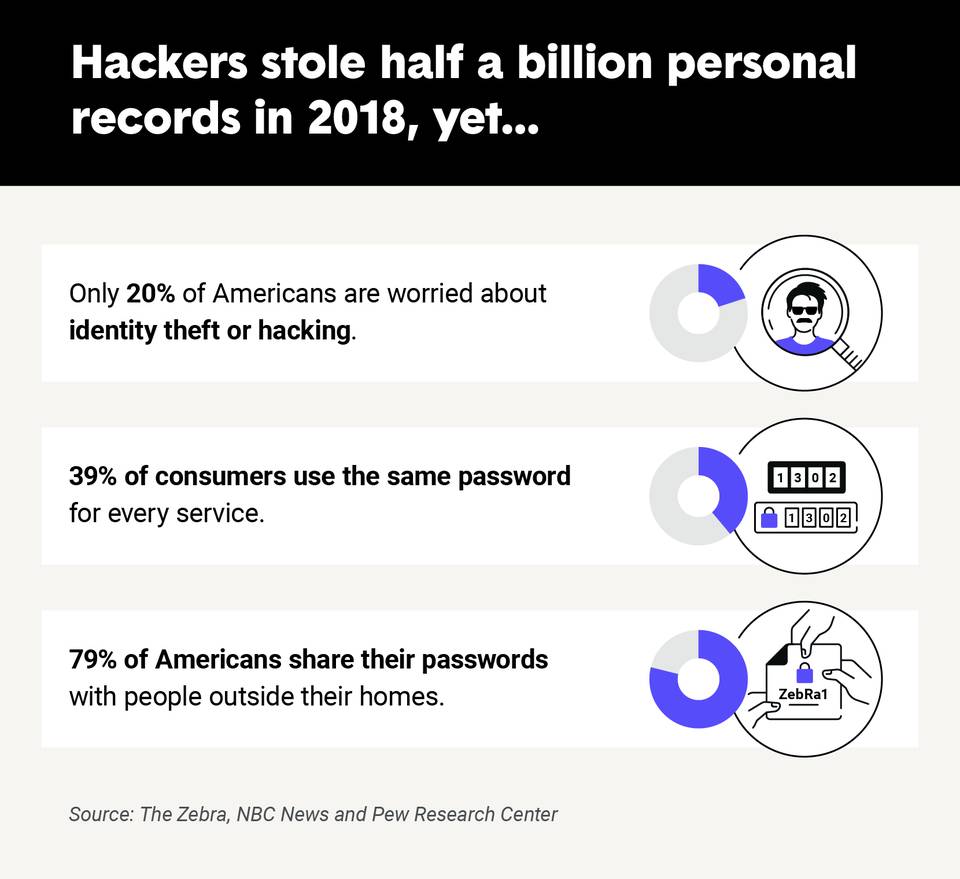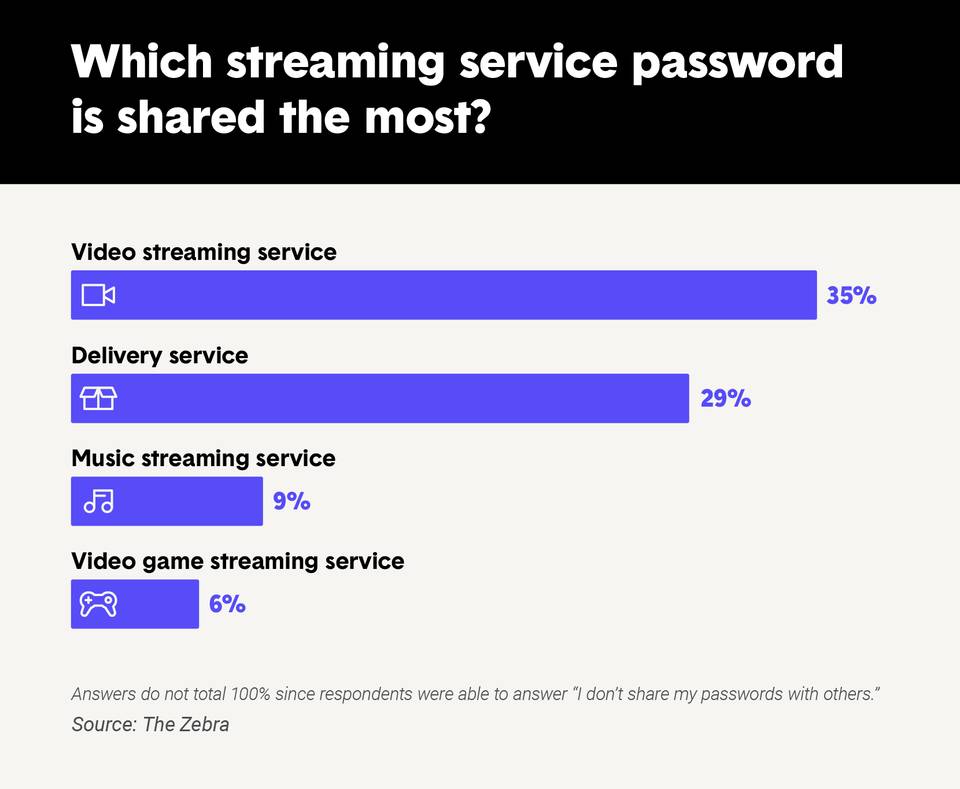You probably share account login information with friends, family, your partner, or in some cases, even your ex. But with all of this openness comes a vulnerability most people don’t consider.
Password sharing is common practice in most families and friend groups (especially with popular services like Netflix and HBO). After all, it would cost around $450 a month to subscribe to every streaming service out there, an unaffordable investment for most Americans. To bridge that gap and still get the entertainment they want, many are sharing their account information with others to access more services. However, this password sharing habit might not be as innocent as it seems.
We asked more than 1,500 Americans about their biggest home security fears and password sharing habits. And it turns out, while password sharing is growing at an alarming rate, identity theft and hacking comes in low on consumers’ radars. Here’s what we found:
- 79% of consumers admitted to sharing passwords with someone outside their home.
- 7% of Americans are worried about their home or devices being hacked.
- Only 13% of Americans said that identity theft is their biggest home security fear.
- Video streaming and delivery service passwords were the most likely to be shared outside the home at 35% and 29%.




